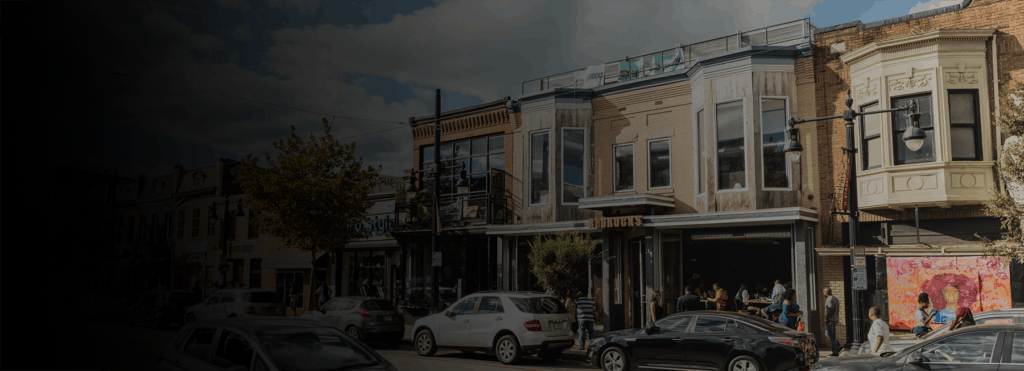The pandemic and rapid social changes brought many challenges for a group of Black business owners in Washington, D.C., and Baltimore, but even so they emphasized the role of their businesses in maintaining the cultural vibrancy of their communities.
In a new report from the National Community Reinvestment Coalition (NCRC), the business owners described how they often struggled to gain access to credit or assistance during the pandemic as they made major operational changes in the marketing and delivery of services in order to stay in business.
The report focused on four businesses in the historic areas of “Old West” Baltimore, and six in the U Street neighborhood of Washington, D.C. The cultural significance of the businesses was assessed based on their location, history, and the political and economic contexts in which they were established and operated. Relationships formed between patrons and owners and the function of businesses also reflected cultural significance.
“Almost all businesses are important, but there are certain businesses that help define and expand the culture and prosperity of the entire community,” said Jason Richardson, NCRC’s director of research and evaluation and one of the authors of the report. “In this report, we focused on the role of these businesses and asked how they endured the challenges of the COVID-19 pandemic.”
The business owners interviewed for the report faced different challenges. In Washington, D.C., gentrification caused significant Black cultural erosion, while business owners in Baltimore were concerned with economic stagnation.
Several of the Washington, D.C., businesses featured in the report got loans and grants through the federal Paycheck Protection Program (PPP), the Economic Injury Disaster Loan (EIDL) program and some city-level assistance. The Baltimore businesses mostly did not have the same access to these programs. Almost all the business owners expressed frustration and confusion over access, changing rules and the extensive paperwork required by the programs. Discouragement, lack of existing banking relationships and the complexity of the process seemed to be the major deterrents to Black business owners in Baltimore.
Despite the difficulty of running their businesses during the pandemic, the business owners viewed the social movements of 2020 as an important factor in their ability to continue operations. They said shifts to online marketing and sales often benefited their businesses. Additionally, neighborhood patronage was boosted by Black social movements like “Black Lives Matter” and the motivation to “Buy Black.”
Read the full report:
https://ncrc.org/the-covid-pandemic-and-its-impacts-on-culturally-significant-businesses/



